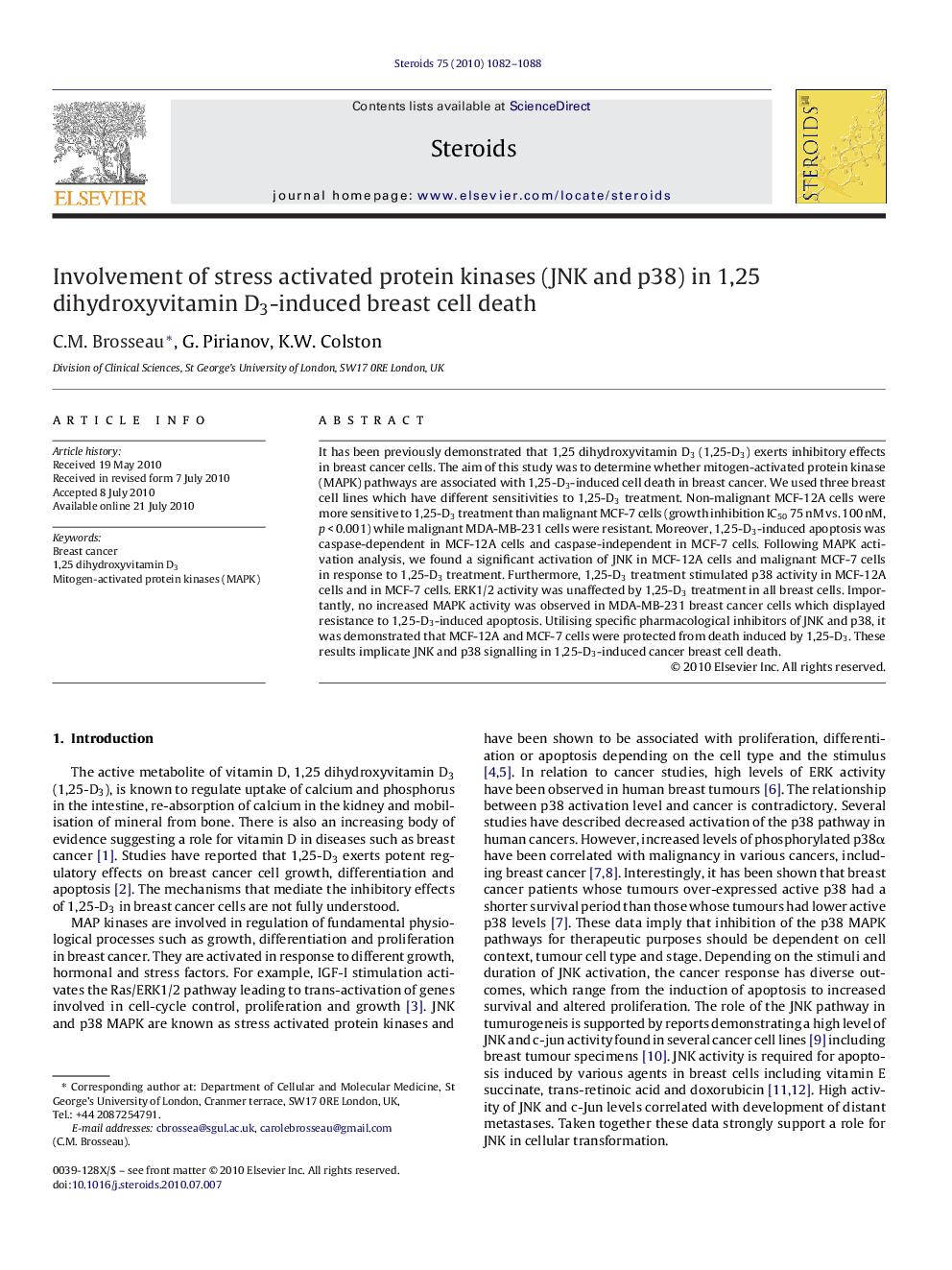| Article ID | Journal | Published Year | Pages | File Type |
|---|---|---|---|---|
| 2028352 | Steroids | 2010 | 7 Pages |
It has been previously demonstrated that 1,25 dihydroxyvitamin D3 (1,25-D3) exerts inhibitory effects in breast cancer cells. The aim of this study was to determine whether mitogen-activated protein kinase (MAPK) pathways are associated with 1,25-D3-induced cell death in breast cancer. We used three breast cell lines which have different sensitivities to 1,25-D3 treatment. Non-malignant MCF-12A cells were more sensitive to 1,25-D3 treatment than malignant MCF-7 cells (growth inhibition IC50 75 nM vs. 100 nM, p < 0.001) while malignant MDA-MB-231 cells were resistant. Moreover, 1,25-D3-induced apoptosis was caspase-dependent in MCF-12A cells and caspase-independent in MCF-7 cells. Following MAPK activation analysis, we found a significant activation of JNK in MCF-12A cells and malignant MCF-7 cells in response to 1,25-D3 treatment. Furthermore, 1,25-D3 treatment stimulated p38 activity in MCF-12A cells and in MCF-7 cells. ERK1/2 activity was unaffected by 1,25-D3 treatment in all breast cells. Importantly, no increased MAPK activity was observed in MDA-MB-231 breast cancer cells which displayed resistance to 1,25-D3-induced apoptosis. Utilising specific pharmacological inhibitors of JNK and p38, it was demonstrated that MCF-12A and MCF-7 cells were protected from death induced by 1,25-D3. These results implicate JNK and p38 signalling in 1,25-D3-induced cancer breast cell death.
Research highlights▶ 1,25-D3 has no effect on MDA-MB-231 cell viability. ▶ 1,25-D3 induces apoptosis by activation of caspases 7 and 8 in MCF-12A cells. ▶ 1,25-D3 induces MCF-7 cell death in a caspase-independent manner. ▶ 1,25-D3 induces breast cell death by activation of stress kinases JNK and p38.
